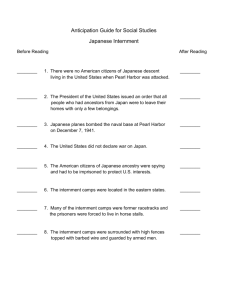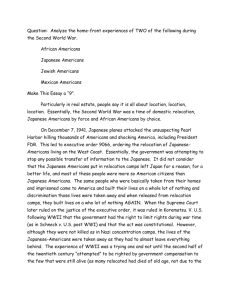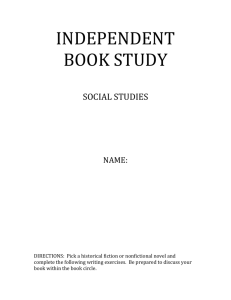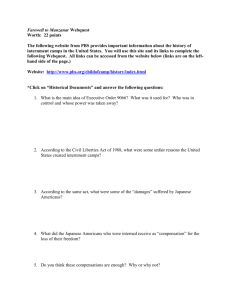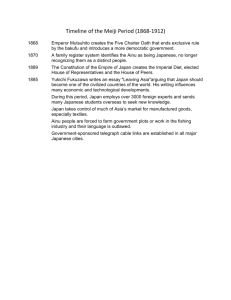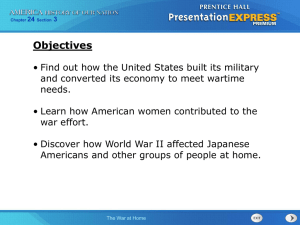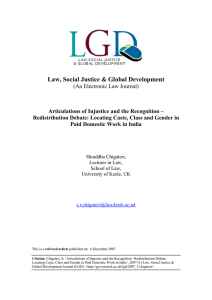ePortfolio Assignment 1
advertisement
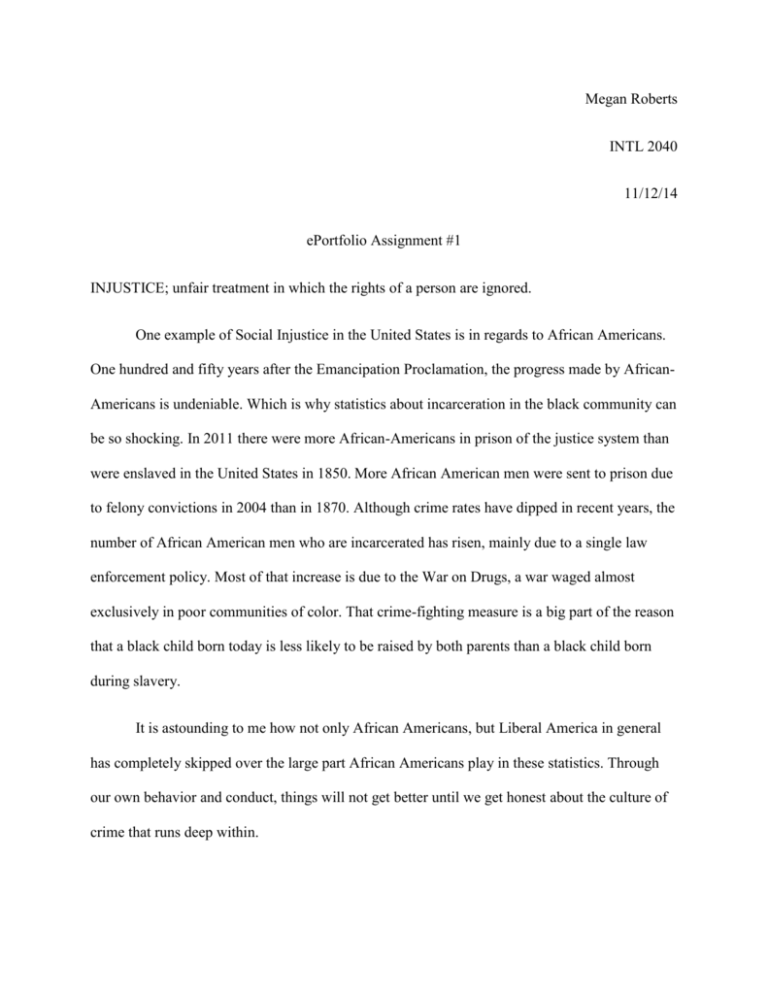
Megan Roberts INTL 2040 11/12/14 ePortfolio Assignment #1 INJUSTICE; unfair treatment in which the rights of a person are ignored. One example of Social Injustice in the United States is in regards to African Americans. One hundred and fifty years after the Emancipation Proclamation, the progress made by AfricanAmericans is undeniable. Which is why statistics about incarceration in the black community can be so shocking. In 2011 there were more African-Americans in prison of the justice system than were enslaved in the United States in 1850. More African American men were sent to prison due to felony convictions in 2004 than in 1870. Although crime rates have dipped in recent years, the number of African American men who are incarcerated has risen, mainly due to a single law enforcement policy. Most of that increase is due to the War on Drugs, a war waged almost exclusively in poor communities of color. That crime-fighting measure is a big part of the reason that a black child born today is less likely to be raised by both parents than a black child born during slavery. It is astounding to me how not only African Americans, but Liberal America in general has completely skipped over the large part African Americans play in these statistics. Through our own behavior and conduct, things will not get better until we get honest about the culture of crime that runs deep within. A second example of Social Injustice outside of the United States is in the country of, India. More than 160 million people in India are considered "Untouchable" people tainted by their birth into a Caste system that makes them impure or less than human. The people known as Dalit make abuses against these people. Researching this I came across headlines from Indian newspapers reading, "Dalit boy beaten to death for plucking flowers"; "Dalit tortured by cops for three days". India's Untouchables have the lowest jobs, and live in constant fear of being publicly humiliated, paraded naked, beaten, and raped by upper caste Hindus seeking to keep them in their place. Merely walking through an upper caste neighborhood is life threatening. Both of these cases stated above are acts of Social Injustice in the present world today. Going back to a not so long ago time, World War II area, there was another Social Injustice act upon Japanese American citizens. Even though the Supreme Court never ruled that the removal and incarceration of Japanese Americans was unconstitutional, many historians and political analysts have described the violations to be injustice. Japanese Americans religious freedoms were violated without the right to practice their Eastern religious beliefs. The practice of the Shinto religion was prohibited in the camps. Christianity was encouraged by camp administrators. Japanese Americans were denied the right of freedom of speech and not allowed to use the Japanese language in public meetings. The FBI searched there homes without search warrants, looking for any items identified as being Japanese and items that looked similar were confiscated. They were picked up from the FBI and denied a trial or access to any legal representative. They could not call upon witnesses or confront accusatory witnesses and they were not told of their crime or the charges against them. The treatments of the Japanese Americans in the detention camps were cruel and the conditions were unsanitary. Hospitals were understaffed and there was barely any medical care for them. The protection of these people was violated because the government acted solely on the basis of race when identifying them. In addition, the government failed to compensate or provided proper compensation to the people for the loss of their property, when they were forced to leave within 48 hours to a couple of weeks. The BILL OF RIGHTS AMENDMENT states “No person shall be held to answer for a capital, or otherwise infamous crime, unless on a presentment or indictment of grand jury, except in cases arising in the land or naval forces, or in the militia, when in actual service in time of war or public danger; nor shall any person be subject for the same offense to be twice put in jeopardy of life or limb; nor shall be compelled in any criminal case to be witness against himself, nor be deprived of life, liberty, or property, without due process of law; nor private property be taken for public use, without just compensation.” The FBI, government and many others violation the rights and freedoms of these Japanese American citizens. They did not have the right to life or property, the right to legal counsel or the right to call upon a witness. The government and the US Army sent these citizens to TOPAZ and locked up over 110,000 men, women and children in ten remote camps controlled by the War Relocation Administration and four male-only camps controlled by the Justice Department. These Americans were never convicted or even charged with any crime, yet were incarcerated for up to four years in prison camps surrounded by barbed wire and armed guards. I believe something like TOPAZ could happen again in today’s world. But it all depends on who the opposition is and who's in charge. Our government put its own people in concentrations camps and that alone says enough. Works Cited "Bill of Rights." Bill of Rights Institute Bill of Rights Comments. N.p., n.d. Web. 11 Nov. 2014.Website "India's "Untouchables" Face Violence, Discrimination." National Geographic. National Geographic Society, n.d. Web. 12 Nov. 2014.Website "A | More | Perfect | Union." A | More | Perfect | Union. N.p., n.d. Web. 11 Nov. 2014. Website Muessig, Ben. "Michelle Alexander: More Black Men Are In Prison Today Than Were Enslaved In 1850." The Huffington Post. TheHuffingtonPost.com, 12 Oct. 2011. Web. 9 Nov. 2014.Website "Topaz - Located near Delta, Utah." Topaz. N.p., n.d. Web. 12 Nov. 2014.Website


